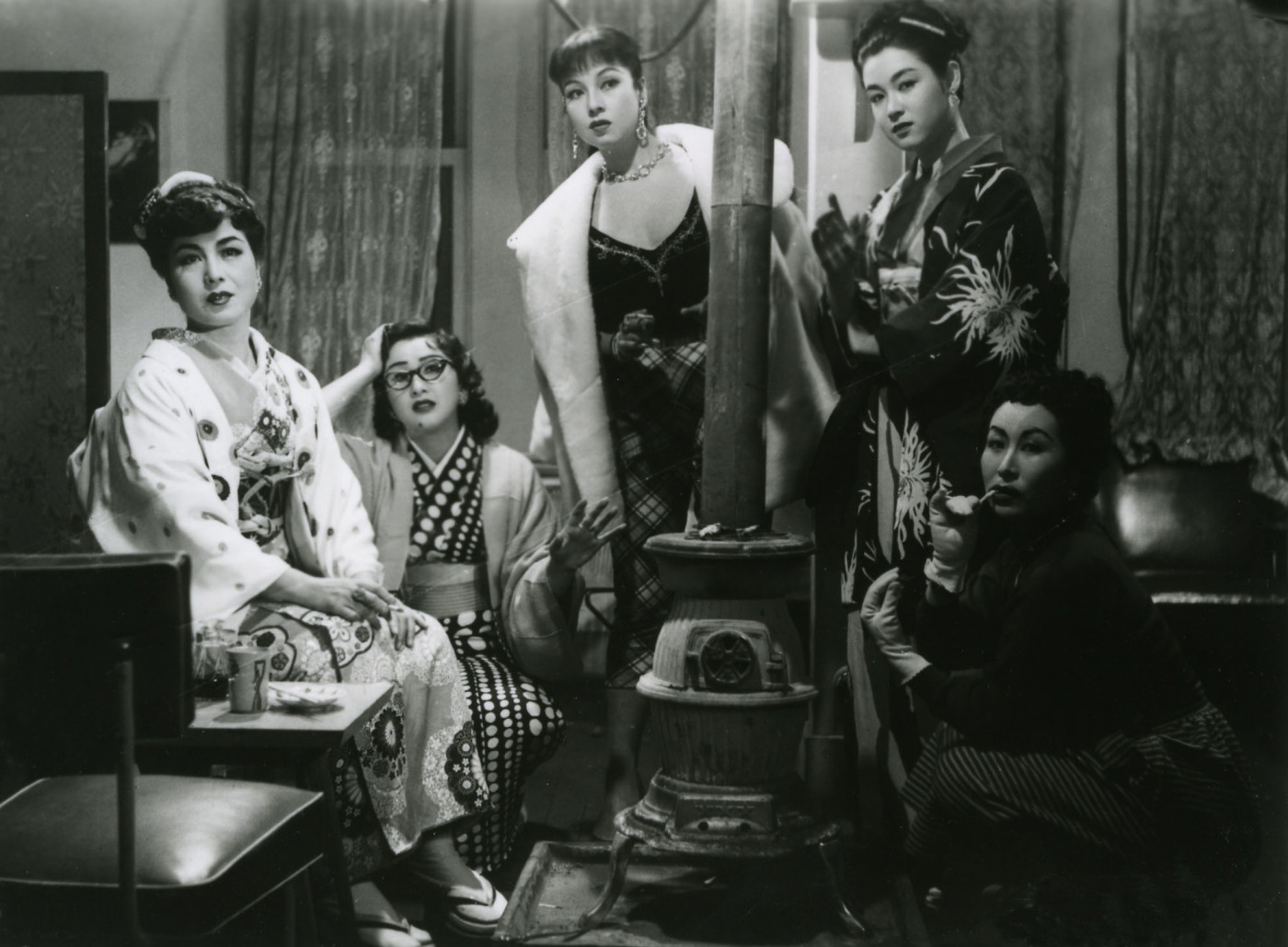
Tribute to Kenji Mizoguchi 2017 / Akasen chitai / Japan 1956
In a series of interwoven storylines, the film explores the lives of the women who work in a brothel, from the mother who’s trying to support her child and sick husband and the man-eater who’s looking for a rich husband, to the young novice who’s terrified by the prospect of selling herself. The film’s up-to-date sociology is underlined by the electronic score from modernist composer Mayuzumi Toshiro, providing a tonality that’s new in Mizoguchi’s work.

Mizoguchi’s last completed film couldn’t have been more timely: a bill to outlaw brothels was being debated in the Japanese parliament as the film was being made, and it’s mentioned more than once in the film’s dialogue. In a series of interwoven storylines, the film explores the lives of the women who work in the Dreamland brothel in the back streets of Tokyo’s Yoshiwara district, from the mother who’s trying to support her child and sick husband and the man-eater who’s looking for a rich husband, to the young novice who’s terrified by the prospect of selling herself. The film’s up-to-date sociology is underlined by the electronic score from modernist composer Mayuzumi Toshiro, providing a tonality that’s new in Mizoguchi’s work. The ensemble cast, featuring several regulars from Mizoguchi’s time at Daiei, includes some of Japan’s most distinguished actresses. Mizoguchi died of leukemia five months after the premiere.
Tony Rayns
85 min / Black & white, 35 mm
Director Kenji Mizoguchi
/ Screenplay Masashige Narusawa podle románu / based on the novel Susaki no Onna by Yoshiko Shibaki
/ Dir. of Photography Kazuo Miyagawa
/ Music Toshiro Mayuzumi
/ Editor Kanji Suganuma
/ Art Director Hiroshi Mizutani
/ Producer Masaichi Nagata
/ Production Daiei, Kyoto
/ Cast Machiko Kyo, Ayako Wakao, Aiko Mimasu, Michiyo Kogure, Eitaro Shindo
/ Sales Kadokawa Corporation
/ Contact The Japan Foundation
The Japan Foundation
4-16-3 Yotsuya, Shinjuku-ku, 160-0004, Tokyo
Japan
Phone: +81 355 623 535
Fax: +81 355 623 500
E-mail: [email protected]
Kadokawa Corporation
2-13-12 Fujimi, Chiyoda-ku, 102-8552, Tokyo
Japan
Phone: +81 807 233 6972
E-mail: [email protected]
First-hand brews throughout the year.
Be among the first to learn about upcoming events and other news. We only send the newsletter when we have something to say.